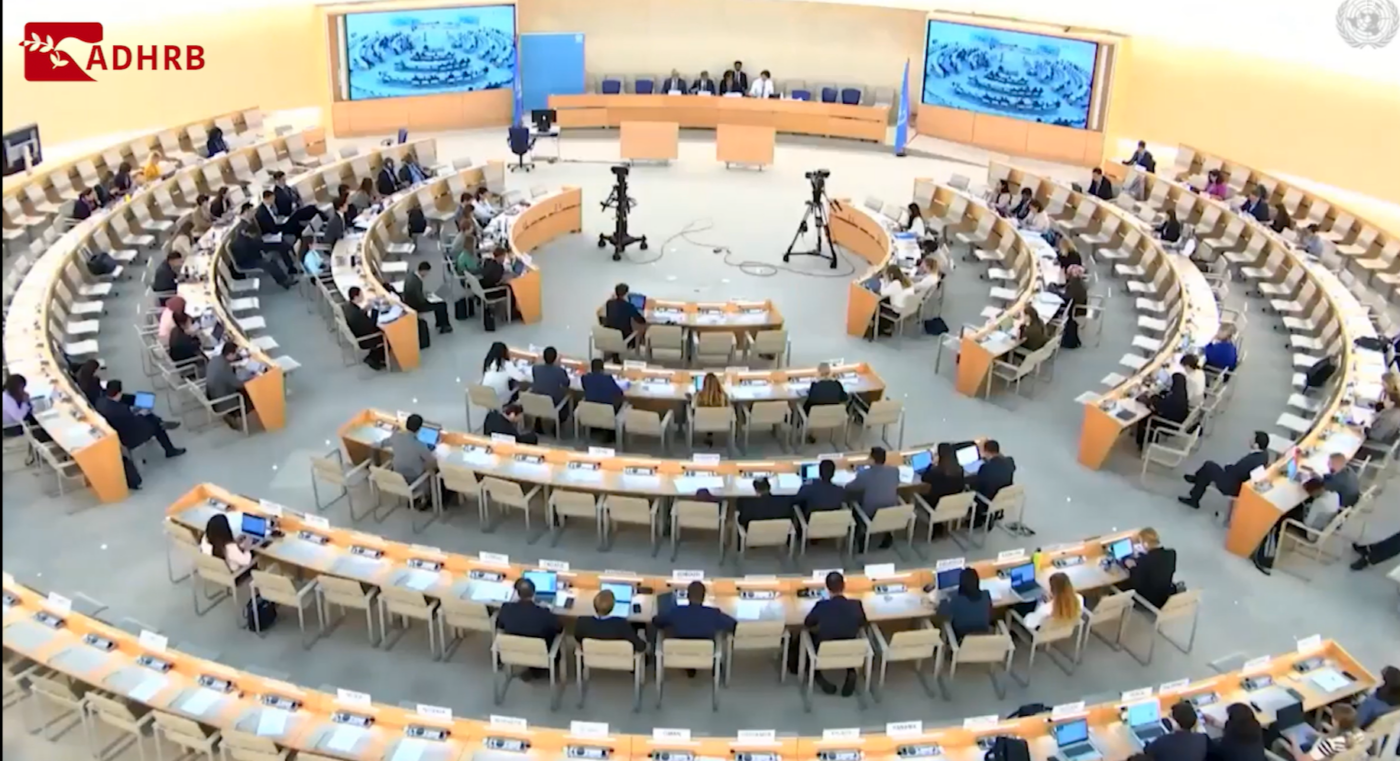On 29 September, ADHRB delivered an intervention at the United Nation Human Rights Council session 54 under item 5 during the General debate. ADHRB shared the Special Rapporteur’s concerns for the worsening health of hunger-striking life-sentenced detainees, Al-Singace, Al-Khawaja, & Fateel, facing reprisals, including medical neglect.
We would like to share the UN Secretary-General’s concerns mentioned in his report on reprisals over continued reports of intimidation and reprisals against those cooperating with the UN, and his condemnation of all these acts committed against them. We applaud his mentioning of Bahrain and the highlighting of abuse of human rights defenders perpetrated by the Bahraini government for engaging with the UN. These human rights defenders, facing unfair verdicts, are Dr. Abduljalil AlSingace, Abdulhadi Al-Khawaja, Hassan Mushaima, Sayed Ahmed Alwadaei, and Sayed Nizar Alwadaei. We share the Rapporteur’s concerns about the deteriorating health since the ongoing hunger strike on 7 August of Al-Singace, Al-Khawaja, and Naji Fateel, who faced reprisals during their life imprisonment, including severe life-threatening continuous medical neglect. Bahrain used spyware, including Pegasus, to limit activists’ UNHRC cooperation, and hasn’t addressed the malicious hackings of the human rights defenders who defended 2011 democratic movement activists. More cases of cyber surveillance against government critics are evident in the ongoing UK lawsuit with Saeed AlShehabi and Moosa Abd Ali, whose phones were hacked in 2011. We hold the Bahraini royal family responsible for these retaliatory tactics and urge your council to take immediate action.





